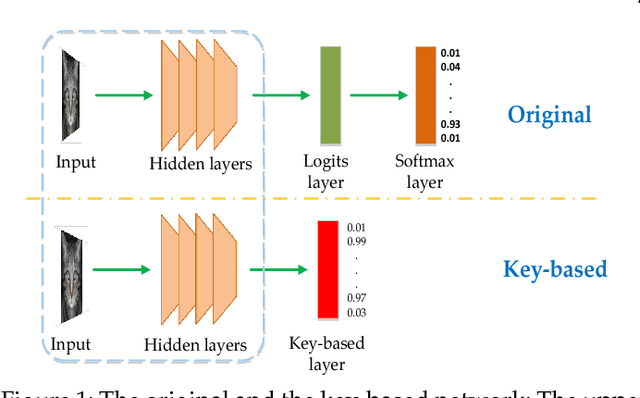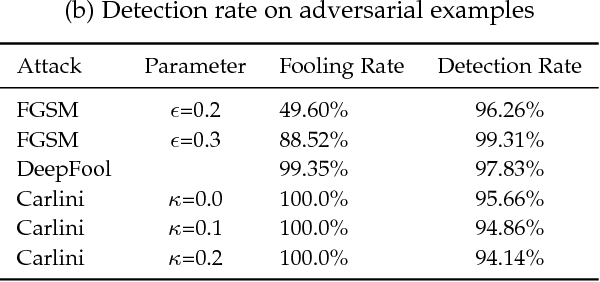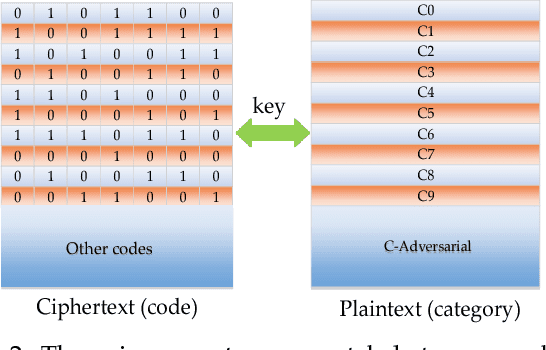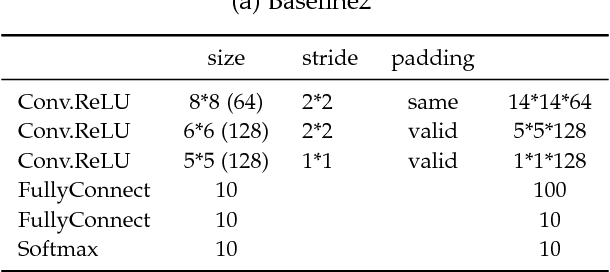Ou wu
Detecting Adversarial Examples via Key-based Network
Jun 02, 2018



Abstract:Though deep neural networks have achieved state-of-the-art performance in visual classification, recent studies have shown that they are all vulnerable to the attack of adversarial examples. Small and often imperceptible perturbations to the input images are sufficient to fool the most powerful deep neural networks. Various defense methods have been proposed to address this issue. However, they either require knowledge on the process of generating adversarial examples, or are not robust against new attacks specifically designed to penetrate the existing defense. In this work, we introduce key-based network, a new detection-based defense mechanism to distinguish adversarial examples from normal ones based on error correcting output codes, using the binary code vectors produced by multiple binary classifiers applied to randomly chosen label-sets as signatures to match normal images and reject adversarial examples. In contrast to existing defense methods, the proposed method does not require knowledge of the process for generating adversarial examples and can be applied to defend against different types of attacks. For the practical black-box and gray-box scenarios, where the attacker does not know the encoding scheme, we show empirically that key-based network can effectively detect adversarial examples generated by several state-of-the-art attacks.
 Add to Chrome
Add to Chrome Add to Firefox
Add to Firefox Add to Edge
Add to Edge